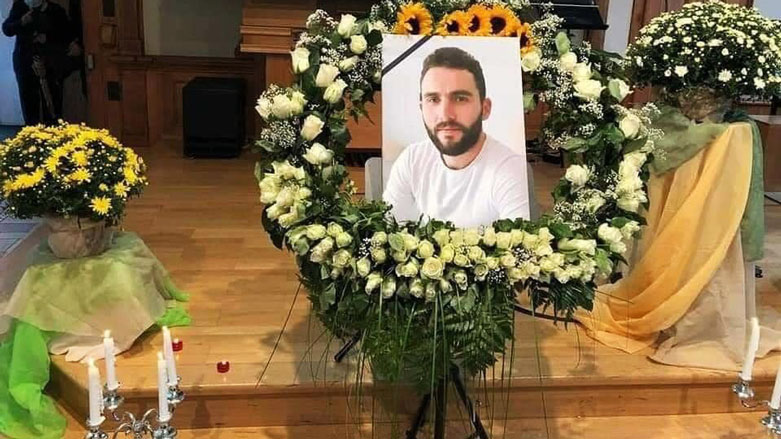Kurdish refugee commits suicide in Switzerland after being denied asylum

ERBIL (Kurdistan 24) – A 31-year-old Kurdish refugee from Iran committed suicide in late August after his asylum request was rejected by Switzerland’s State Secretariat for Migration (SEM) in Glarus canton.
Masoud Ghaderi was from the western Iranian city of Bokan but travelled to Switzerland two years ago and applied for asylum, as reported by Hengaw, a rights group focused on Iranian Kurds.
However, his application was rejected by the State Secretariat for Migration (SEM) in August, said Hengaw, which said, “In the past few days, the Swiss police told the Kurdish refugee that he would soon be deported back to Iran. He committed suicide for this reason.”
Ghaderi committed suicide by jumping in front of a moving train and was killed instantly.
The Swiss German-language daily newspaper Südostschweiz reported that he was buried on Friday at the request of his relatives.

Hengaw recently claimed it has recorded several instances of Kurdish activists being deported back to Iran from European countries.
Read More: In Europe for years, Kurdish activists at risk of deportation to Iran
Iranian security forces allegedly killed one deportee it had subjected to torture, the group said, and multiple others have either been sentenced to prison or their fate is unclear.
In mid-May, the asylum request of 22-year-old Iranian Kurd Arezu Eliassi was also rejected after the SEM decided that the claims that she would be persecuted if repatriated to Iran were unfounded.
She has appealed the decision, later telling the local Swiss German-language daily Blick that she would face “torture, rape, and execution.” So far, the outcome of her case has not been resolved. As a supporter of the Kurdistan Democratic Party – Iran (PDKI), and her father’s history as a Peshmerga, she would presumably be at immediate risk of jail or even execution.
Blick went on to report that, in other European countries, membership in the PDK-I is often enough to be granted asylum status but apparently this is not the case in Switzerland, which is not a member of the European Union.
Kurds in Iran often face disproportionate levels of arrest and other persecution by the Iranian state. In the past few months, dozens of Kurdish activists have been imprisoned, even as the coronavirus pandemic continues to spread in detention facilities.
In mid-July, Kurdish language teacher Zara Mohammadi was sentenced in Iran to ten years in prison on charges of being a “national security threat.”
According to a separate report by the rights monitor Hengaw, Iranian forces arrested over 50 Kurds in July alone and authorities have detained 47 of them on charges of political activism and connections with opposition groups. The rest are said to be civil rights and religious freedom activists.
Executions, which Amnesty International says Tehran is increasingly using as “a weapon of repression,” have also increased. United Nations rights experts condemned as “unlawful” one of the killings, which it said, “took place in secret after an enforced disappearance.”
Read more: Iran continues execution of Kurdish prisoners to little international outcry
Kurds and other minorities are also overrepresented in executions. At least ten death sentences against Kurdish prisoners were carried out last month.
Editing by John J. Catherine
